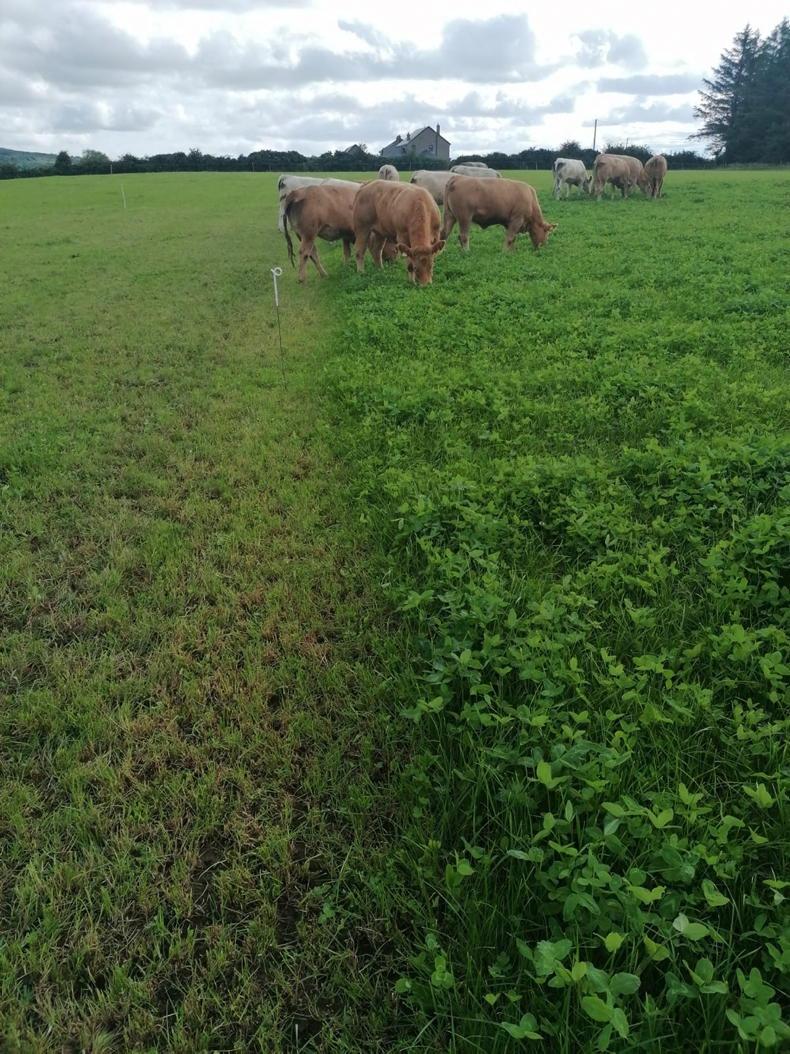My second cut of red clover was taken three weeks ago, and again I was very happy with how the crop bulked.I got approximately eight bales/acre after a 48-hour wilt.
My second cut of red clover was taken three weeks ago, and again I was very happy with how the crop bulked.
I got approximately eight bales/acre after a 48-hour wilt.
I’d been watching the weather for a couple of weeks, getting two dry days together was proving difficult but I got there eventually and the grass went in in good conditions.
The plan was always to take three cuts of silage from the two red clover fields, but after weighing up my silage stocks for the winter and having a conversation with Pat Cashman from Goldcrop, I decided that I should potentially have enough of silage if I only cut one of the fields for the third time.

James Strain had only grazed red covering with lambs before.
We both thought that cutting silage that wasn’t needed didn’t really make much sense, especially when I could really do with the extra grazing area at this point.
Grazing
The only problem is that I had only ever grazed my red clover swards with lambs for fear of damaging it and I don’t have lambs on my farm at this time of year.
So, do I start buying lambs earlier than normal - or do I try grazing it with cattle?
The field in question is a reasonably dry, so I decided to give the cattle a go. As I didn’t really know what I was doing, I decided that going into low covers and grazing it off quickly would be the best option.
There are seven acres in the field and it is usually split into four paddocks. So, 13 days after the field was mowed, I decided there was enough of a cover to allow me start to graze.

James Strain on-off grazed 15 heifers to start.
I let 15 heifers into a third of one of the paddocks. I allowed them in for eight hours and then took them back out and put them on grass again.
I did this for two days to allow them to acclimatise to the new diet and hopefully reduce the chance of bloat.
On the third day, they were left on the field and were given one day allocations of grass.
Outlook
Due to the low covers, they are grazing it out well and ground conditions are good, so they are doing no damage.
In hindsight, I maybe should have waited and extra few days to let things bulk a little more, because when I finish grazing the fourth paddock, the first is unlikely to be ready to go back into.

Due to the low covers the cattle are grazing it out well.
However, I was afraid that if I waited too long to start grazing, then the last paddock would be very strong by the time I got to it and would be difficult to graze without damage.
It’s definitely a learning curve, but an interesting one and it's definitely impressive how quickly the clover is able to bounce back after grazing and cutting.





SHARING OPTIONS: